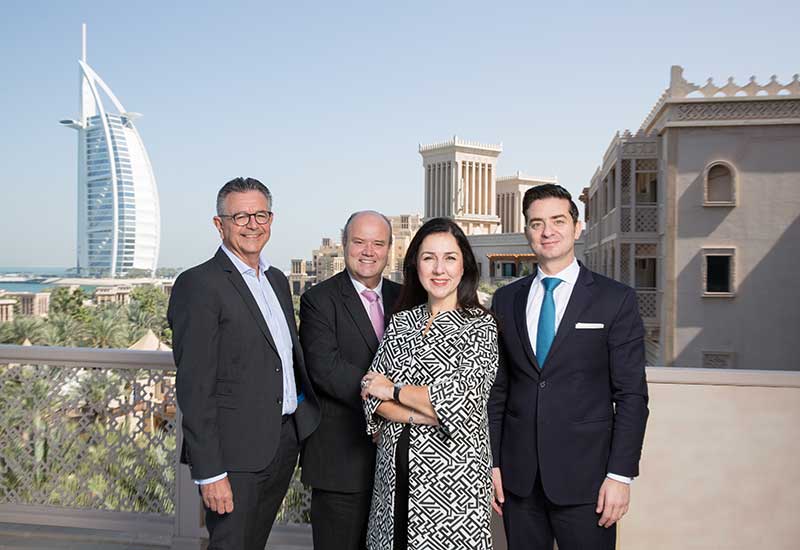The average length of stay for guests at the resort is five days, and while the main source markets include Russia, China and the UK, Bollhalder notes that the local market is key. “We need to be in their heart and mind to bring visitors here. This is a destination for the local community to show their guests.”
Saliba adds: “Our focus now is to maintain and grow these markets and work on improving our presence in China and India market. We have seen a huge increase in first quarter and this is where we see huge opportunities for us in the resort.”
There was admittedly a dip in 2012-2013 from the Russian market, says Cuthbert, but from 2015 onwards that market has been climbing up the charts again. He also believes that the Chinese market can be even more lucrative now. “With the visa on arrival regulations, people from China don’t have to travel in tour groups anymore so you get that HNWI who can stay in such a property. We are aiming to make Madinat Jumeirah and Dubai a focus, but for the 7-10 day tourist not for the 2.5 day tourist.”
Saliba reiterates the importance of regular guests, and reveals that in peak season, the resort witnesses around 55% regular clients. “The other thing is that we have many people who have been coming here for many years, with their children. And now those children are now coming here with their families.”
On that note, after recounting many examples of longstanding guests, Cuthbert says: “Look at who we are as a hospitality company. We have grown from the city, we are a Dubai company and people are attached to us.”
And with the people and the city, the management team asserts that the resort is also growing. Saliba adds: “This year and the long-term, we need to keep sourcing new markets, we need to make sure that more parts of the world know about Dubai and Madinat Jumeirah. We want to continuously improve on our offerings, either promotions, new food and beverage concepts.
“We also need to keep focusing on personalised service — we are known to be a luxury hospitality company and we must remain luxury in how we treat our clients. Luxury is not just about product but also the personal touches that we do with our client.”
Part of this involves working with the community and its people, notes Timer. She adds that in addition to trying to improve services, the hotels are looking to connect further with Dubai residents, with art for example.
Cuthbert adds on this point that listening to the customer is important. “We need to ensure we listen to feedback because we cannot become complacent. We look at the F&B landscape of Dubai, for example — we have 9,700 restaurants, TripAdvisor says 11,000 in New York. we are not agile, we will not win the race. Look after the repeat guests who are the most loyal brand ambassadors of what we have. We can’t lay on our laurels and we can’t think that they will come. We built it and they did come but many other things have been built as well.”
And with that, Bollhalder rounds off the conversation by going back to Jumeirah’s most important asset: people. “To continue to achieve all this, we need to ensure continuous education of our colleagues, to make sure that when people come here, they are served well.”

| Advertisement |





